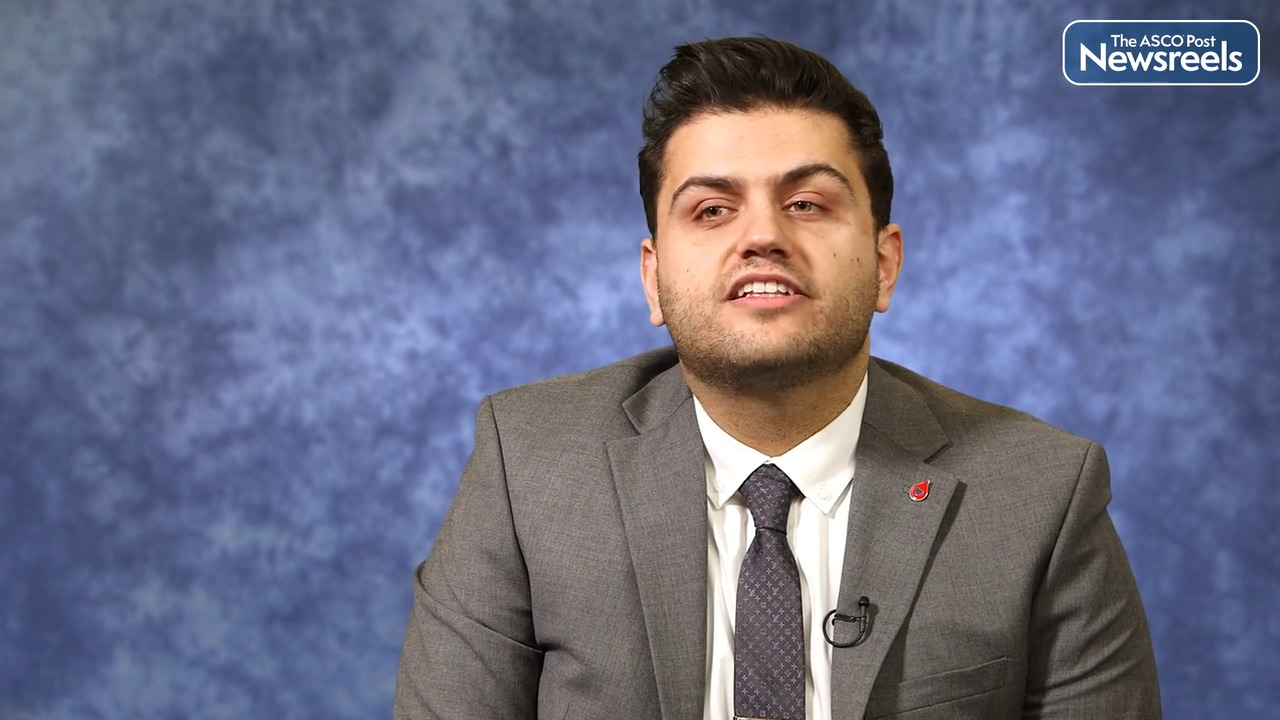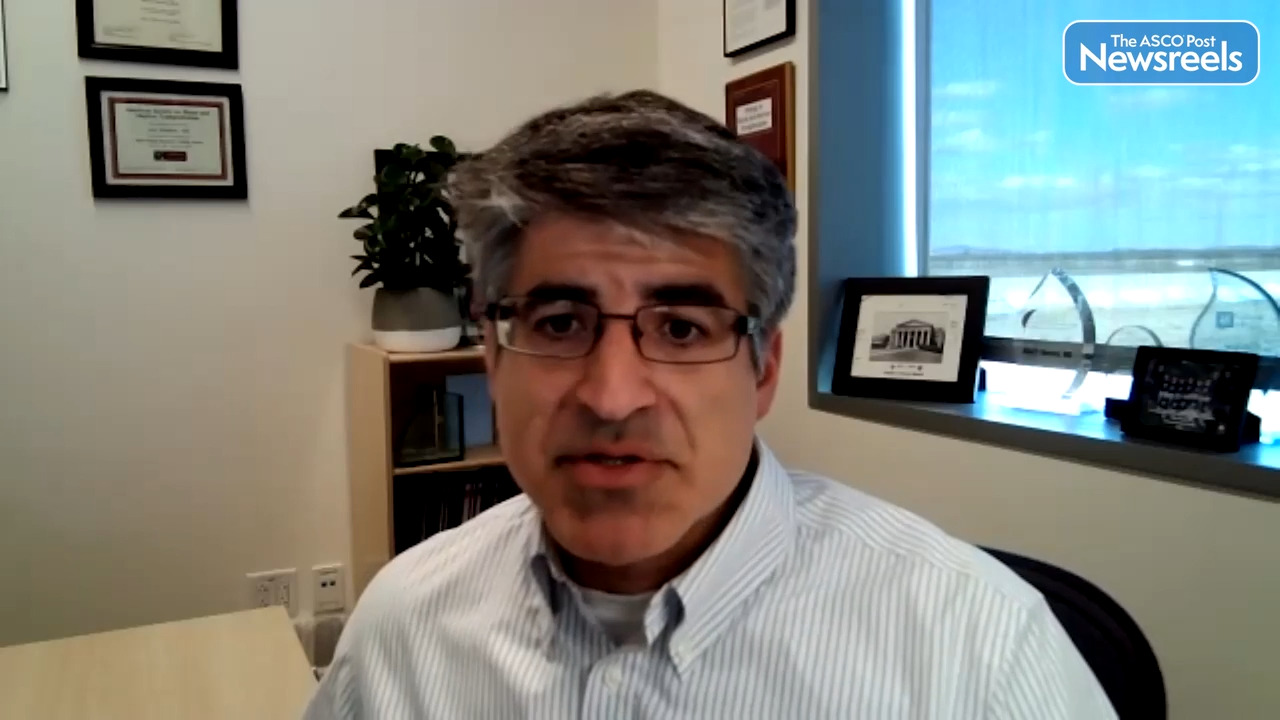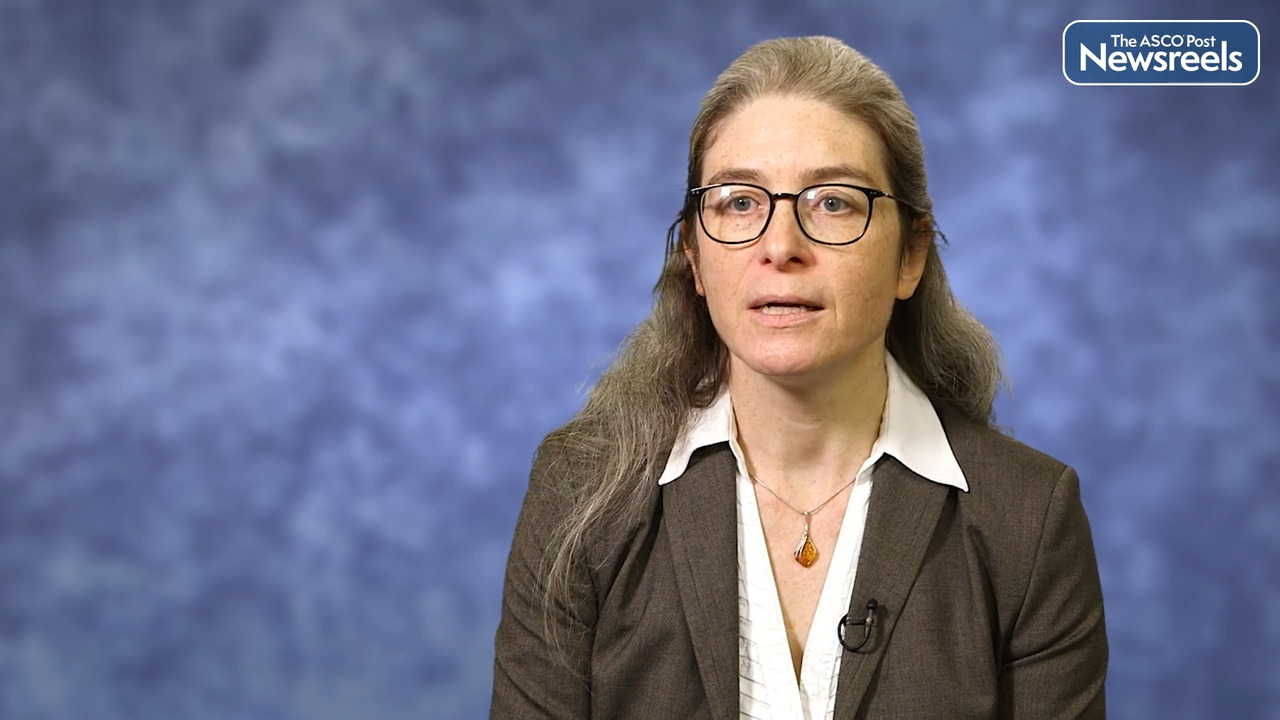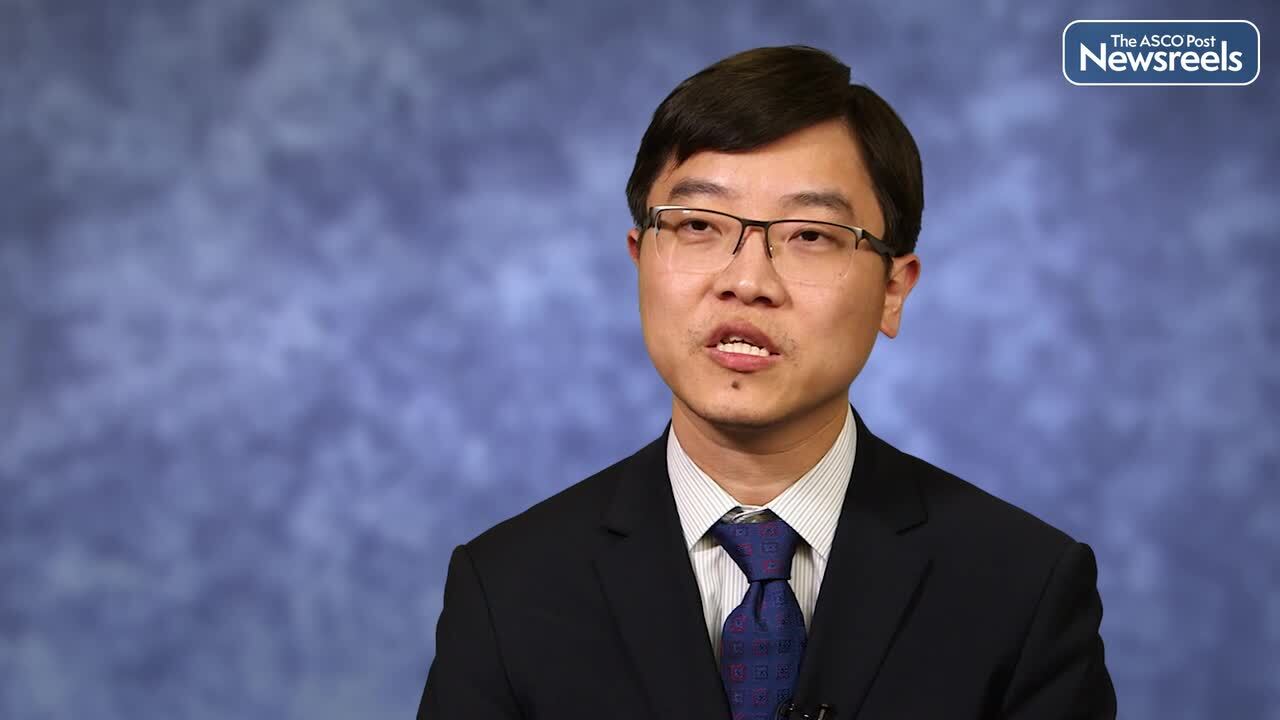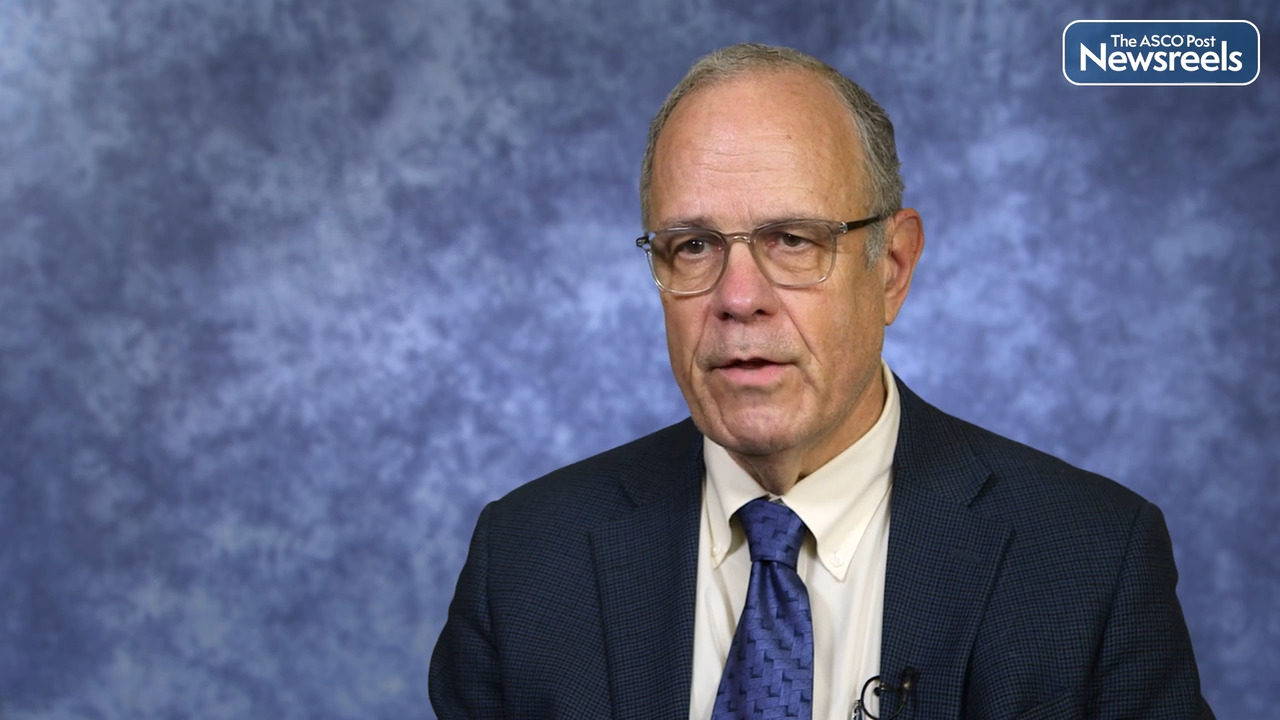Eunice S. Wang, MD, on AML: Gemtuzumab Ozogamicin Plus Standard Induction Chemotherapy Improves Outcomes
2022 ASH Annual Meeting and Exposition
Eunice S. Wang, MD, of Roswell Park Comprehensive Cancer Center, discusses the outcomes of patients newly diagnosed with acute myeloid leukemia (AML) who were treated with cytarabine plus daunorubicin plus gemtuzumab ozogamicin (GO). These patients experienced higher rates of measurable residual disease–negative complete remission and complete remission with incomplete count recovery, compared to those treated with cytarabine plus idarubicin daunorubicin alone. Although adding GO was not associated with improved overall survival, longer follow-up is warranted to determine an absolute survival advantage of this regimen (Abstract 58).
The ASCO Post Staff
Abdul Rahman Al Armashi, MD, of Seidman Cancer Center, Case Western University, University Hospitals Cleveland Medical Center, discusses a retrospective analysis, using a CDC database, in one of the largest subgroup-based racial population studies analyzing mortality trends in patients with acute myeloid leukemia (AML). Between 2000 and 2019, AML mortality was the highest in Whites and the lowest in American Indians or Alaska Natives. The highest rate of increase in mortality was seen in Asians or Pacific Islanders. Dr. Al Armashi talks about the many variables that might contribute to these inequalities (Abstract 600).
The ASCO Post Staff
Alex F. Herrera, MD, of the City of Hope National Medical Center, discusses results from the POLARIX study, which showed that circulating tumor DNA (ctDNA) analysis has prognostic value for patients with previously untreated diffuse large B-cell lymphoma. Patients who did not achieve 2.5 or greater log-fold change and/or did not have ctDNA clearance following one cycle of polatuzumab vedotin along with rituximab, cyclophosphamide, doxorubicin, and prednisone had inferior outcomes than those who did. Early changes in ctDNA levels may be of use in risk-adapted trial designs to identify patients in need of alternative treatment. (Abstract 542).
The ASCO Post Staff
Eva Hoster, PhD, of Munich University, discusses results from the European MCL Elderly Trial, which confirmed the strong efficacy of rituximab maintenance in minimal residual disease (MRD)-negative patients with mantle cell lymphoma (MCL) after induction. Omitting maintenance based on MRD-negativity is thus discouraged. Considering the short time to progression, more effective treatment strategies should be explored in MRD-positive patients to improve long-term prognosis (Abstract 544).
The ASCO Post Staff
Jiye Liu, PhD, of Dana-Farber Cancer Institute, discusses study findings that demonstrate KDM6A regulates CD38 and CD48 expression in multiple myeloma. Dr. Liu’s team validated combination treatment with an FDA-approved EZH2 inhibitor plus daratumumab, which can overcome daratumumab resistance in preclinical multiple myeloma models, providing the rationale for combination clinical trials to improve patient outcome (Abstract 148).
The ASCO Post Staff
Mark R. Litzow, MD, of the Mayo Clinic, discusses phase III results from the ECOG-ACRIN E1910 Trial, which show that adding blinatumomab to consolidation chemotherapy resulted in a significantly better overall survival in adult patients aged 30 to 70 years with newly diagnosed B-lineage acute lymphocytic leukemia (ALL) who were measurable residual disease–negative after receiving intensification chemotherapy. The authors believe this may represent a new standard of care for this population (Abstract LBA-1).
